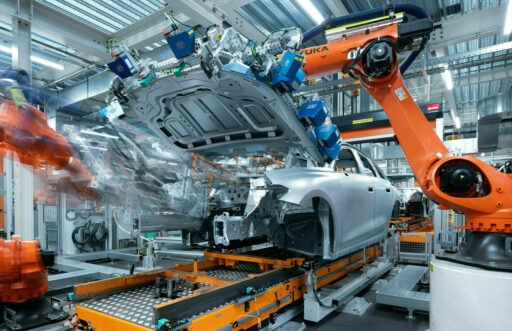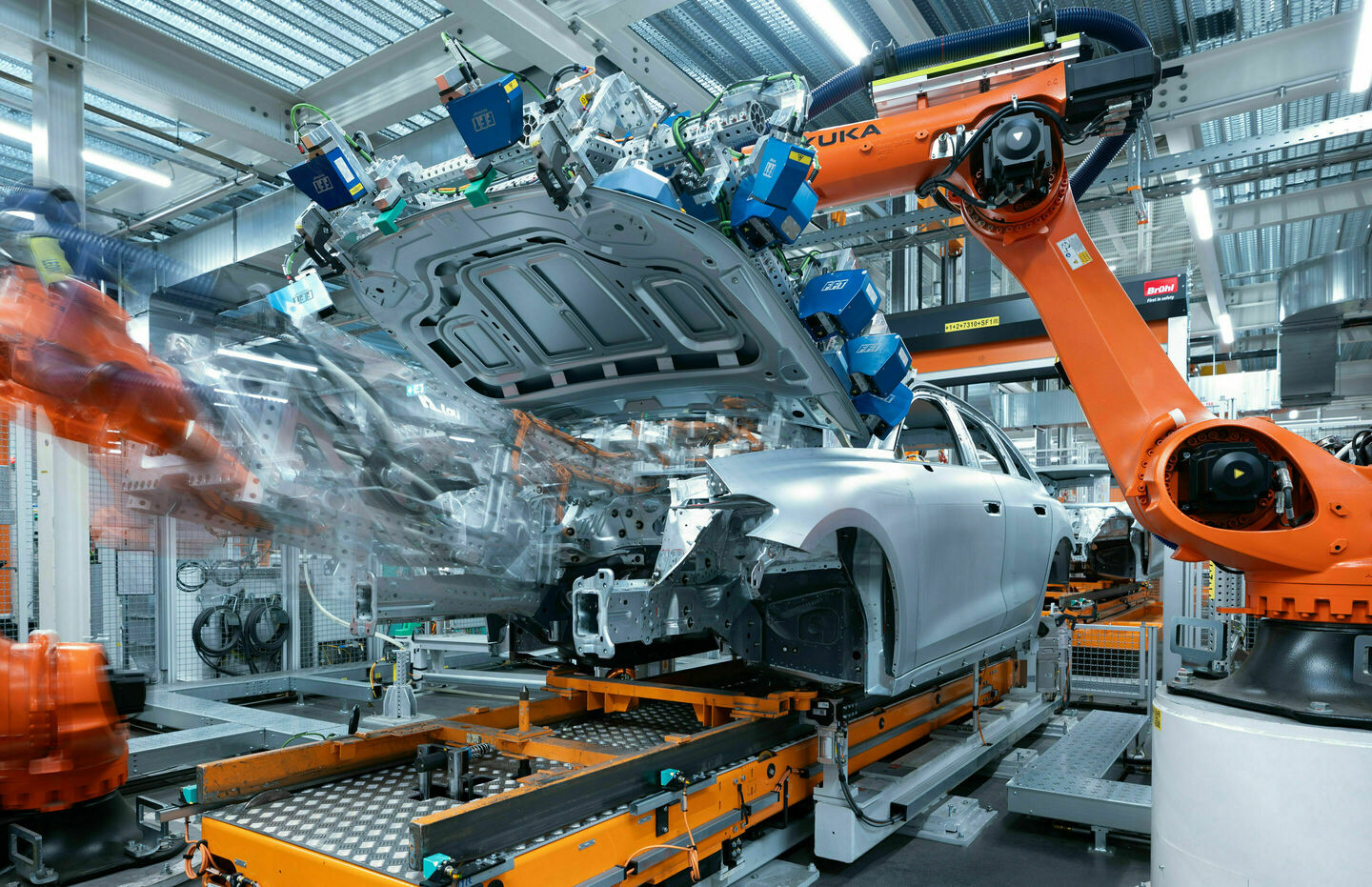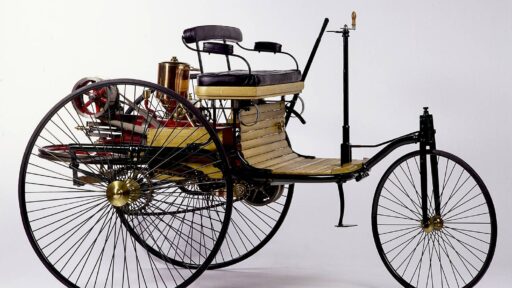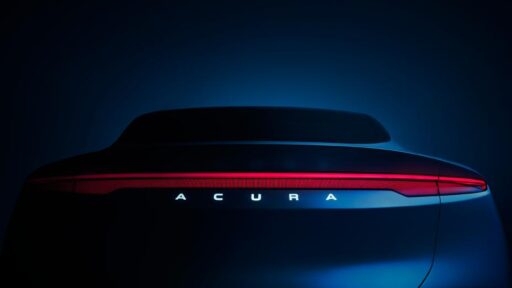Audi has officially begun production of the new A5 family in Neckarsulm, marking the introduction of the first models to utilize the Premium Platform Combustion (PPC) with partially electrified drive systems and a revamped electronic architecture. This step is a significant milestone in Audi’s strategy to enhance the sustainability of its vehicle manufacturing.
Under its “360factory” strategy, Audi aims for all models produced at the Neckarsulm plant to achieve net carbon-neutral status by 2025. To meet this ambitious goal, Audi is investing in more efficient production lines, increasing automation, and leveraging cutting-edge technologies. Notably, the plant’s paint shop, set to be one of the industry’s most advanced, will play a crucial role in this transformation.
The launch of the new Audi A5 has sparked the largest startup phase in the history of the Neckarsulm plant. Board Member for Production Gerd Walker highlighted the team’s vast experience with combustion engine vehicles and complex production ramps as key assets.
READ MORE: Nikola Reports Strong Q2 2024 Results, Surpasses Revenue Expectations
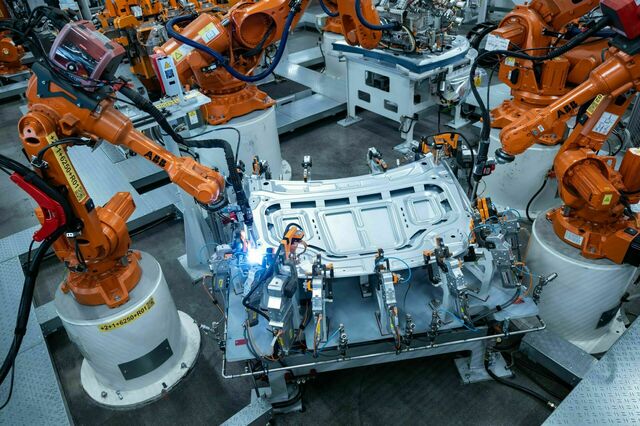
Fred Schulze, Plant Manager, emphasized the workforce’s upskilling in new automotive technologies and the development of a future-ready production infrastructure. Rainer Schirmer, Chairman of the Works Council, expressed confidence in the team’s ability to manage the complexities of production, ensuring the success of the Audi A5 at the site.
Audi’s broader vision for the future of production is gradually becoming a reality, as the company continues to modernize, digitize, and transform its facilities to support sustainable manufacturing. By 2025, Audi plans to achieve CO2-neutral production at Neckarsulm, aligning with its global targets for all sites.
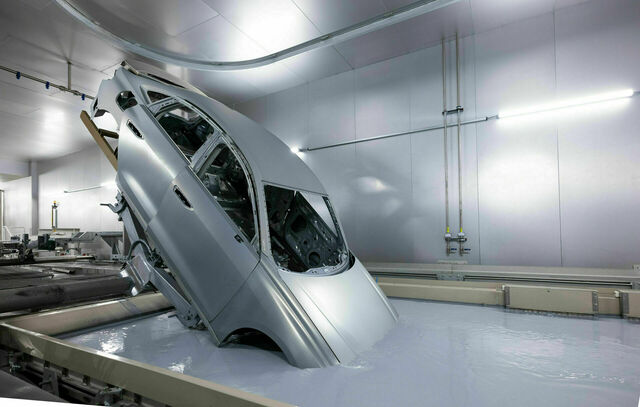
One of the key advancements at the plant is the renovated paint shop, which, upon completion in 2025, will be one of the most modern in the industry. Audi has optimized numerous processes and introduced environmentally friendly practices, particularly for the Audi A5.
The use of sustainable water-based paints has been standard, but the latest models benefit from a new painting method that eliminates the need for separate drying of filler, resulting in significant energy savings of up to 140 kWh per vehicle.
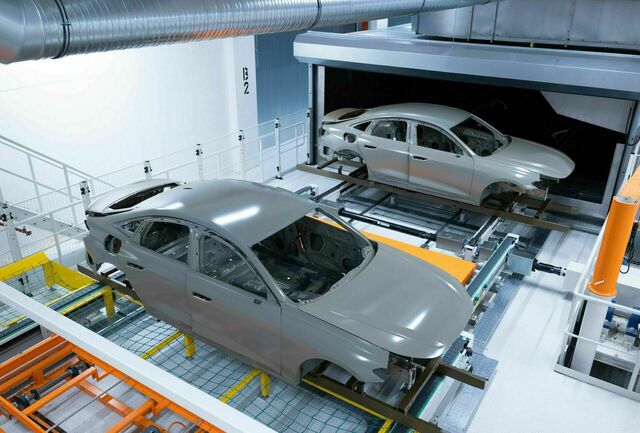
Audi also employs state-of-the-art methods to prevent corrosion, such as cathodic dip painting, which immerses and rotates the car body to ensure thorough coating. The plant has introduced a new energy-efficient drying process that heats the body from the inside, better suited for future electric and hybrid vehicles.
Additionally, Audi’s new paint separation process, which uses advanced filters to capture paint mist, reduces energy consumption by about 50 kWh per vehicle and eliminates the need for fresh water and chemicals, highlighting the company’s commitment to sustainable production.
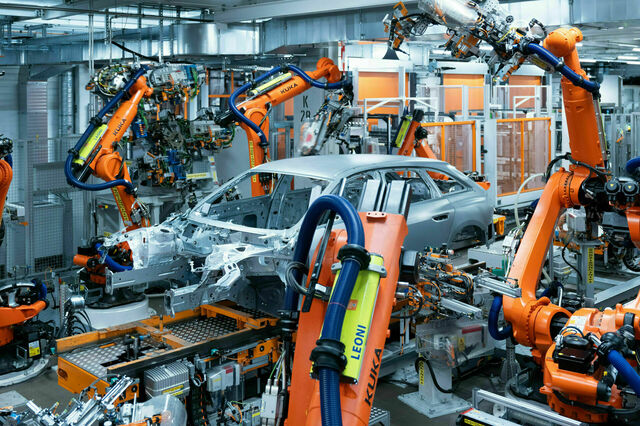
Water conservation is another priority for Audi, with the company aiming to halve its ecologically weighted water consumption by 2035. In Neckarsulm, this involves a closed water cycle facilitated by the nearby Unteres Sulmtal Wastewater Association’s treatment plant. This system will reduce fresh water usage by up to 70 percent starting in 2025, as Audi will recycle purified water back into the production process. Audi’s participation in the Alliance for Water Stewardship further underscores its dedication to responsible water use.
In pursuit of premium quality, Neckarsulm has become the first site in Audi’s network to fully automate the installation of all add-on parts in the body shop, improving precision and minimizing external variables. The plant has also seen a significant increase in automation, with over 80 percent of material handling in the body shop now automated, thanks to driverless transport systems that have been in place since 2014.
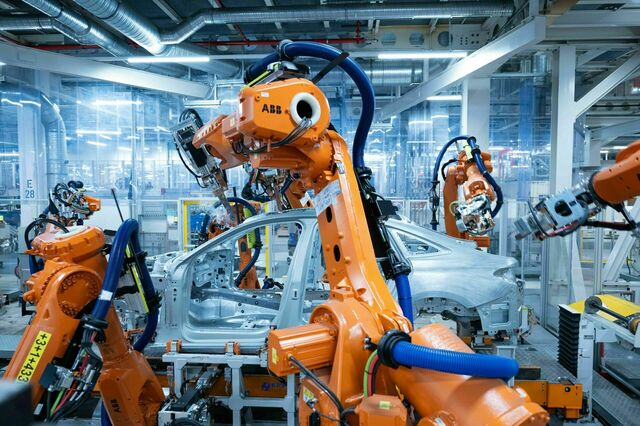
Audi is also pioneering virtually smokeless fixing, a new method in car body construction that significantly reduces residue and speeds up production. This innovation enhances the efficiency of attaching components, such as doors, using small soldering points without the need for extensive cleaning afterward.
Quality control at the Neckarsulm plant has also seen significant advancements. Inline quality measurements now use cutting-edge technology to assess the dimensional accuracy of components directly on the production line. This allows for more frequent and immediate checks, enabling quicker responses to any issues that arise.
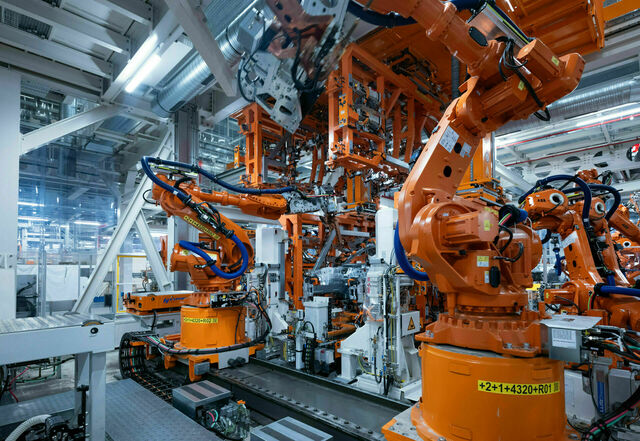
Additionally, Audi is leveraging augmented reality (AR) to improve the inspection process. Inspectors can now use AR apps on tablets to view connection points in real-time, drastically speeding up the documentation process and enhancing overall efficiency.
Through these innovations, Audi continues to push the boundaries of modern automotive production, laying the groundwork for a more sustainable, automated, and efficient future.
READ MORE: XPENG Showcases Australia’s First Flying Car at Melbourne Electric SUV Expo
Subscribe today for the freshest car news delivered to your inbox
